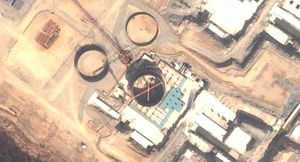If the global norm against nuclear proliferation is to retain meaning, North Korea must remain isolated from the international community in certain respects. But that doesn’t mean the United States or South Korea should be allowed to conduct naïve policy and planning toward North Korea. Recognizing the threat we are dealing with on the Korean Peninsula—a nuclear-armed North Korea—is a distinct proposition from allowing North Korea to rejoin the international community.
In recent congressional testimony and in other forums, I variously described North Korea as a “virtual” and “de facto” nuclear state, as part of a larger argument about military planning. Subsequently the chairman of South Korea’s Saenuri Party—whose members control the National Assembly and the Presidency—suggested it was time for South Korea to “recognize” (“in-jeong”) North Korea as a nuclear state. This has set off a firestorm. Unfortunately, public commentary and government rhetoric has confused the difference between the multiple meanings—and implications—of “recognition.”
So why describe North Korea as a “virtual nuclear state” at all? Doesn’t that risk making North Korea’s nuclear weapons a kind of “new normal” or signal acceptance of North Korea’s nuclear program? On the contrary. The standard phrasing about North Korea’s nuclear program—that the United States will never accept North Korea as a nuclear state—removes all sense of urgency from public discourse about North Korea policy. The result is that North Korea is left to build and expand its nuclear and missile programs, moving ever closer to an assured retaliation capability. The long-term trajectory of North Korea’s nuclear program demands a sense of urgency because there’s no obvious plan in place to prevent it from achieving its aims. Refusing to acknowledge that North Korea is moving toward capabilities commensurate with a de jure nuclear state downplays the seriousness of the threat.
Moreover, acknowledging the gravity of the nuclear threat—that it’s strategically and militarily dangerous—frees the U.S.-South Korea alliance to explicitly take into account assumptions about North Korean nuclear weapons in military planning and exercises, defense budgeting, and deterrence strategy. It may be that the alliance already makes assumptions about North Korean nuclear weapons in their various facets of defense policy, but acknowledging that North Korea possesses a nuclear weapons capability avoids doublespeak and allows word and deed to align.
One of the longstanding criticisms of U.S. and South Korean policy toward North Korea has been its failure to acknowledge that North Korea has the ability to detonate nuclear devices on enemy targets. We might generically describe this as a “nuclear weapons capability.” Even if North Korea has not yet succeeded in miniaturizing a nuclear warhead to fit on its diverse missile arsenal—a feat some believe it has already achieved—the ability to kill and destroy with a nuclear detonation constitutes weaponization of nuclear material by any logical standard. It would be irresponsible not to acknowledge this latent capability, plan against it, and design policy to arrest it. Of course, the U.S. and South Korean governments are not blind and do understand the threat posed by a nuclear North Korea. The aforementioned criticism is an unfair one.
Some might argue that bringing North Korea back into the international community would socialize North Korea to more responsible behavior. Perhaps, but doing so while North Korea retains an active nuclear weapons program would do irreparable damage to the nuclear taboo. International norms die when norm-compliant actors (the international community) observe a failure to impose costs on norm-defiant actors (North Korea) for their norm defiance. When this happens, a “norm violation cascade” results in which still more violations of the norm occur, effectively killing the norm. This is why North Korea must remain apart from the international community; to do otherwise risks triggering a norm violation cascade.
As a matter of policy, the United States has long stated that it will never accept North Korea as a nuclear state. Ironically, the marriage of this hard rhetorical line with an utter lack of a negotiation plan for arresting North Korea’s nuclear trajectory equates to a kind of tacit acceptance of North Korea’s nuclear capabilities. The sentiment of U.S. phrasing is right, but the phrasing is tone deaf. What the United States and South Korea should say is that “North Korea will never be able to rejoin the international community as long as it retains a nuclear weapons capability.” U.S. policy rightly seeks to avoid signaling that it’s somehow acceptable to violate the nuclear taboo, but it should also seek to avoid mistakenly signaling that it’s blissfully unaware of that which even the public is aware (e.g., nuclear tests). This is a simple fix to avoid an otherwise unfair criticism of U.S. policy.
Given North Korea’s flagrant violations of the most basic expectations required of a legitimate state, North Korea must stand apart from the community of nations. Calling North Korea a virtual or de facto nuclear state is not only consonant with that imperative; it reinforces that we do not downplay North Korea’s nuclear threat.

































